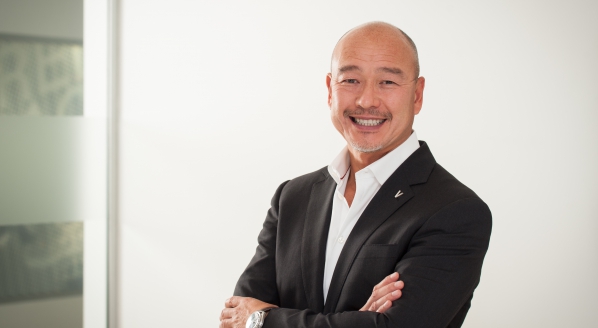Unexplained Wealth Orders
Kirsten Conacher, associate at Clyde & Co, clarifies how this new legislation could impact the UHNW landscape…

In the popular consciousness, ill-gotten extreme wealth and yachts are, regrettably, often linked: the image of the "baddie" luxuriating on board his well-appointed boat, safely ensconced away from the authorities, tabloids and general public, is a tired stereotype and a generally unfair cliché – yacht owners are as morally diverse a group of people as any other subsection of society, and the Bond villains are few and far between. More recently, this perception has – against the background of the Panama/Paradise Papers revelations, and the rise in populist political rhetoric from left and right alike – become part of a general chilling in public attitudes towards high and ultra-high net worth elites in the UK and further afield.
"Plus ça change…", one might think. Yet with the hardening attitudes and increasing attention paid to how the very (and, as we shall see, potentially even the moderately) wealthy acquire and manage their money have also come new trends in the legal landscape, and – and, unlike criticism, these are not so easily ignored. With the gap between the wealthiest and the poorest becoming an increasingly hot political topic, policies seeking to more closely police how the rich acquire, hold, manage and (especially) pay tax on their wealth are seen as vote-winners in many western countries.
With the gap between the wealthiest and the poorest becoming an increasingly hot political topic, policies seeking to more closely police how the rich acquire, hold, manage and (especially) pay tax on their wealth are seen as vote-winners in many western countries.
The most striking development in recent English legislation has been the introduction of Unexplained Wealth Orders (UWO). Introduced by the Criminal Finances Act 2017, these came into force on 31 January 2018. UWOs are a new concept in English law, and how and to what extent they will be used remains uncertain (limited policies or guidance have to date been issued regarding them), but they have the potential to be a powerful tool for investigating and enforcing legal sanctions against holders of suspect wealth. Indeed, within the first month of their existence, two UWOs were granted (both against an individual who was later identified as Zamira Hajiyeva, wife of Jahangir Hajiyev, a former chairman of the International Bank of Azerbaijan who was jailed in 2016 following charges of fraud and embezzlement). Earlier this year, the National Crime Agency (NCA) had indicated it was working on over 100 potential cases, while in October the NCA successfully resisted a legal challenge by Mrs Hajiyeva, which also resulted in the details of the case being reported publically for the first time.
Broadly, an UWO is a means of using civil powers (as opposed to criminal – where the standard of proof is, of course, higher) to investigate and confiscate the perceived proceeds of crime, and are available to authorities such as the police, NCA and Serious Fraud Office. The authority in question must apply to the High Court (and can do so without notice to the respondent) and establish that there are reasonable grounds to believe both that the respondent holds property worth greater than £50,000 (note the relatively low threshold – this is as likely to catch mid-range sports cars as it is superyachts) and that their lawfully obtained income would be insufficient to allow them to obtain that property.
The legislation applies to politically exposed persons (PEPs), those actually or allegedly involved in serious crime (which includes tax evasion), and people connected to them. The alleged crime does not need to have been committed in the UK, or committed by a UK national. If granted, it appears likely that the UWO will be accompanied by, or swiftly followed with, an interim freezing order restricting the respondent's ability to utilise their assets. The respondent will be given a set period of time to comply with the terms of the UWO, which will likely include producing information and documents to explain the unexplained aspect of their wealth and perhaps how they acquired a particular asset. In the Hajiyeva case, the specific assets under scrutiny by the NCA include a large residential property in Knightsbridge and a golf course in Berkshire – although the media's focus has (predictably) been squarely on Mrs Hajiyeva's alleged Harrods habit, reported to have topped an impressive £16 million over the course of a decade.
Although UWOs are new territory in this jurisdiction, there are analogies elsewhere in the world. In many civil law jurisdictions, the courts have always been able to probe the source of a person's wealth in civil contexts (for example divorce proceedings). There is also some colourful anecdotal evidence of comparable – if rather more direct – practices by enforcement authorities, such as the Italian tax police pulling over supercars and asking their drivers how they paid for them!
It is important not to overplay the importance of UWOs - at present, this is one specific measure aimed at two narrowly-defined groups of people who represent a small minority amongst high net worth individuals, but it is emblematic of wider sea changes – hiding unaccounted for wealth is becoming riskier, and the chances of being held to account and forced to explain and justify one's sources of funds or tax arrangements (whether to the authorities or to the media) are increasing.
Hiding unaccounted for wealth is becoming riskier, and the chances of being held to account and forced to explain and justify one's sources of funds or tax arrangements (whether to the authorities or to the media) are increasing.
Equally, those of us working in the superyacht industry do need to be aware that some of the potential targets of UWOs may be active in our industry (stereotypes do from time to time have a basis in fact), and the risks of dealing with such people are becoming greater. We ourselves are aware of several yachts under investigation due to allegations that PEPs have purchased them with misappropriated public funds from their countries of origin, while the Hajiyeva case and comments from the NCA's Director of Economic Crime reported in the press also strongly suggest that corrupt PEPs are the main target in the crosshairs.
In short, owners need to exercise caution in the management of their affairs and ensure they seek proper guidance from their professional advisors, while builders, suppliers and other industry professionals need to apply robust risk management and follow appropriate Know-Your-Client processes when doing business. All of us should remain ever-mindful of the legal and reputational issues at play, and remember that, in the worst case scenario, the decisions we take today may be the ones we are explaining in public court a few years down the line.
Profile links
Click here to become part of The Superyacht Group community, and join us in our mission to make this industry accessible to all, and prosperous for the long-term. We are offering access to the superyacht industry’s most comprehensive and longstanding archive of business-critical information, as well as a comprehensive, real-time superyacht fleet database, for just £10 per month, because we are One Industry with One Mission. Sign up here.
Related news

Transparency in the UHNW world
Clive Jackson, founder of Victor, explores why transparency is fundamental for client satisfaction
Business
Related news
Transparency in the UHNW world
6 years ago



